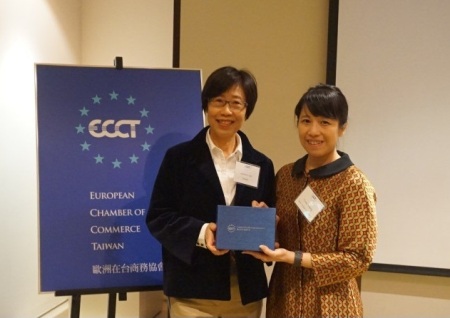CSR trends in Taiwan

A total of 394 companies operating in Taiwan, mostly local companies, were part of the survey. There were a total of 124 items in the survey, covering a diverse range of issues including environmental, corporate governance, supply chain, social and economic issues.
The number of companies providing CSR reports rose by 250% from 2013 to 2014. This was partly because it became mandatory for companies with over NT$10 billion in capital as well as companies in the financial, chemical and food and beverages industry to publish reports (this includes retailers as long as 50% of a firm's revenues are derived from food or beverages). 77% of Taiwan's top companies published CSR reports in 2015, which places Taiwan above the global average of 73% of top companies reporting.
While only 23% of the total number of listed companies in Taiwan were part of the survey, together they account for 78% of all revenues generated by listed companies, therefore making the sample quite representative of Taiwan's corporate sector. The survey found that Taiwanese firms, in contrast with multinational corporations, do not regard reputational risk as the top priority risk. While international companies regard reputation and their branding as the greatest source of risk, only 6% of companies surveyed regard this as a crisis issue. Instead Taiwanese companies rate economic performance as the top priority.
There is a growing trend of hiring one of the big four accounting firms to do assurance and verification of CSR reports, especially among companies in the food industry [on account of recent food safety scandals]. According to Yen, close to 50% of CSR reports were independently verified, mostly by certification and testing companies, but a growing number were by accounting firms. The Financial Supervisory Commission is in charge of CSR reporting.
CSR reporting has some way to go to be regarded as balanced. Only 46% of companies were willing to disclose their own deficiencies. Moreover, even these companies did not provide statements as to how they would improve. According to Yen, the quality of mandatory reports was not high but the quality of voluntary reports was very high. She also suggested that companies going beyond mandatory requirements tended to have higher earnings than their peers.
Only 37% of companies evaluated and explained related opportunities and benefits brought by risk management. Many companies still do not understand that CSR is not just about donations or volunteer work but has the potential to pre-empt crises. It is much better for firms to engage with and support their stakeholders on an ongoing basis to find out what they need and help them meet their needs and build relationships. This is because no company is perfect. Sooner or later something will go wrong and having a good relationship will make it easier to deal with a crisis if and when it occurs.
Yen made a distinction between a CSR report, a static document, and CSR reporting, which is regular and continuous reviews of CSR strategies and actions, business strategies, evaluation of business risks and the identification of business opportunities. CSR reporting is no longer like printing a company brochure. Companies need to follow international standards. 90% of companies in the survey applied the Global Reporting Initiative's (GRI) G4 guidelines in their reports. GRI is an international independent standards organization that helps businesses, governments and other organizations understand and communicate their impacts on issues such as climate change, human rights and corruption. G4 guidelines specify the need for boundaries (geographical areas and/or aspects of the company covered by the report). In addition, they specify that reports should cover not only the company's operations but also its supply chain as well as provide materiality analysis, such as the company's reputation and the welfare of employees.
While 40% of reports were compiled by companies' CSR committees, administration, public affairs or dedicated CSR departments, a growing number of CEOs or company presidents are taking on the role, indicating growing awareness at the top about the importance of CSR reporting. Of the issues companies care about the most, economic performance is the most important for companies in all sectors, followed by occupational safety and health, training and education, corporate governance and energy management. However, priorities for various industries are slightly different. Financial services companies rate risk management above occupational health and safety while the food industry ranks product and service labelling as its third most important issue.
Taiwanese firms clearly are not yet taking employee satisfaction seriously. Only 15% of companies in the survey disclosed satisfaction surveys of their employees.
